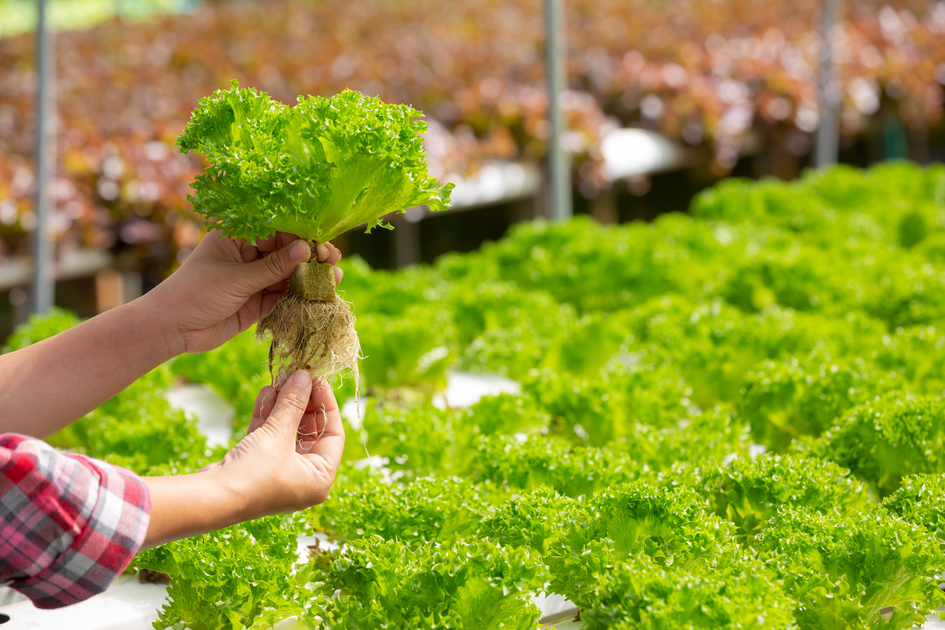Hydroponic Farming: The Future of Agriculture
In recent years, hydroponic farming has gained significant attention as an innovative and sustainable method of agricultural cultivation. Unlike traditional soil-based farming, hydroponics allows plants to thrive in a nutrient-rich water-based solution, without the need for soil. This groundbreaking technique offers numerous advantages, including increased crop yields, efficient resource utilization, and year-round production capabilities. In this blog, we will delve into the world of hydroponics, exploring its benefits, techniques, and its potential to revolutionize the future of agriculture.
Enhanced Crop Yields:
Hydroponic farming excels in maximizing crop yields compared to conventional soil-based farming. By delivering precisely tailored nutrients directly to the plant’s root system, hydroponic systems eliminate competition for resources, ensuring plants receive optimal nutrition. Moreover, the controlled environment in hydroponics eliminates the risks of pests, diseases, and adverse weather conditions, further enhancing productivity. With the ability to grow crops vertically, hydroponic systems make efficient use of space, allowing multiple layers of crops to be cultivated within a smaller footprint. This vertical farming approach significantly increases the yield per square meter, making hydroponics an ideal choice for urban environments or areas with limited arable land.
Efficient Resource Utilization through Hydroponic Farming:
Water scarcity and nutrient depletion are major challenges facing traditional agriculture. Hydroponic farming offers a solution by drastically reducing water usage and minimizing nutrient wastage. Unlike traditional farming, which requires copious amounts of water to maintain soil moisture, hydroponics recirculates water within the system, using up to 90% less water. The water used in hydroponics can be collected, purified, and reused, reducing the strain on freshwater sources.
Additionally, hydroponic systems precisely deliver nutrients to plants, ensuring they receive the necessary elements for optimal growth. The controlled environment allows for precise monitoring and adjustment of nutrient levels, minimizing nutrient runoff and pollution. As a result, hydroponics promotes sustainable agriculture by reducing the need for synthetic fertilizers and protecting water bodies from nutrient pollution.

Hydroponics system, planting vegetables and herbs without using soil for health, Modern food and agricultural design concepts.
Year-round Production:
One of the most significant advantages of hydroponic farming is its ability to provide a consistent supply of fresh produce throughout the year. By creating an artificial growing environment, hydroponics eliminates dependence on seasonal variations and geographical limitations. Temperature, humidity, and light conditions can be finely controlled, enabling crops to grow regardless of external factors.
This year-round production capability offers numerous benefits, including a reliable supply chain, reduced transportation costs, and the ability to meet consumer demands for fresh, locally grown produce even in areas with harsh climates or limited growing seasons. Moreover, with hydroponics, farmers can cultivate high-value crops, including herbs, leafy greens, and specialty vegetables, which have a short shelf life but are in high demand.
Sustainable Agriculture via Hydroponic Farming:
Hydroponic farming aligns perfectly with sustainable agriculture practices. By eliminating the need for soil, hydroponics minimizes land degradation and deforestation, preserving natural ecosystems. The controlled environment reduces or eliminates the use of pesticides and herbicides, resulting in cleaner, healthier produce. Hydroponics also reduces greenhouse gas emissions associated with traditional farming methods by eliminating the need for tilling, reducing energy requirements, and limiting transportation distances.
Furthermore, hydroponic systems can be integrated into urban areas or built in proximity to consumers, reducing the carbon footprint associated with transportation and storage. This localization of food production can enhance food security, promote local economies, and provide access to fresh, nutritious produce for urban populations.
Conclusion:
Hydroponic farming represents a promising solution to address the challenges of traditional agriculture. With its ability to enhance crop

Any comments?